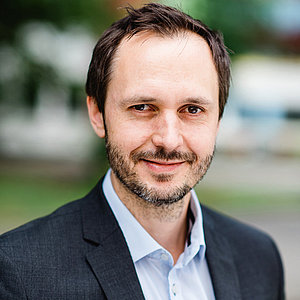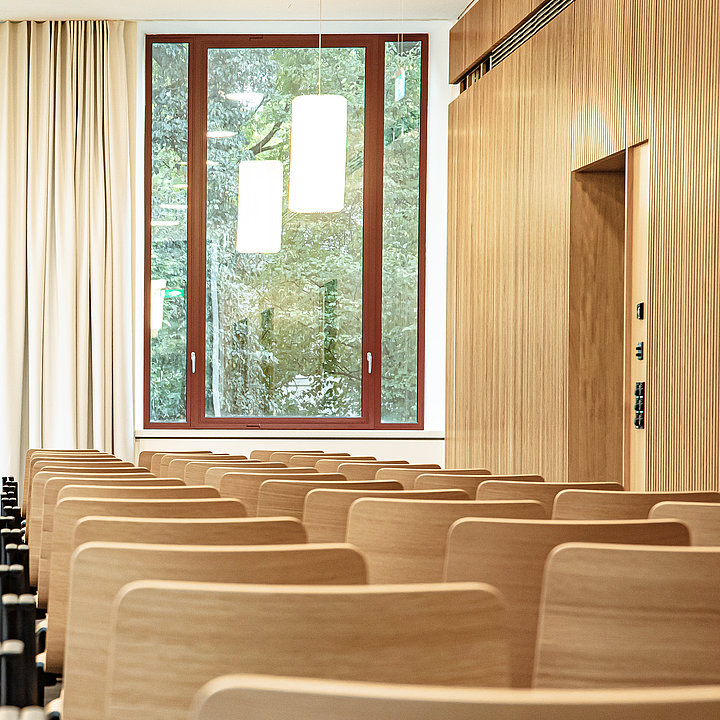About the Young Security Conference 2023
Russia’s illegal invasion of Ukraine has called into question the peace and stability that the EU and NATO were established to ensure. However, the actions of illiberal actors on the continent has exacerbated disunity on both sides of the Atlantic. What can the EU do to become a relevant and autonomous security actor, and should this even be its goal? Why is the EU’s Common Foreign and Security Policy (CFSP) stagnating at a time when change is needed to respond to Russia’s war against Ukraine? And what is required to set up the necessary institutional infrastructure to become a true Union? The #YSC2023 positions itself on the cutting edge of EU security politics as we search for innovative solutions on how to reform the CFSP in this pivotal time in Europe’s history.
The #YSC is a Berlin Based think-tank that connects young thinkers with policy experts and academic scholars in a critical and constructive dialogue about the future of European foreign and security policy. Through its annual conference and fellowship, the YSC stands out for its participatory and innovative character. By engaging in various panels and workshops, submitting policy papers through our fellowship, and taking part in a wide range of creative exchanges, attendees can participate in a perfect environment for sharing and discussing new ideas. The conference covers crucial topics such as Franco-German relations and the EU's strategic autonomy, making it an exceptional platform to gain insights and perspectives on European foreign and security policy.
Find out more about the Young Security Conference's Agenda at https://www.youngsecurityconference.com/yscagenda-2023.
Photo: ©Leonhard Simon
Conference Program
Friday, May 26, 2023
10 a.m. - 10:30 a.m.
Keynote Speech - Hannah Neumann
Speaker: Hannah Neumann (Member of the European Parliament (Group of the Greens/European Free Alliance))
Hannah Neumann is a prominent figure in the European Parliament as the peace and human rights spokesperson of "The Greens/European Free Alliance (EFA)" group, Vice-Chair of the Human Rights Committee (DROI), and a member of several other committees. She has a strong academic background in media sciences and peace and conflict studies,and her expertise in peace projects led her to work for various organisations such as the United Nations and the European Commission. Prior to her political career, she worked as a policy advisor in the German Bundestag and was a consultant for campaigns on anti- discrimination, democracy promotion, climate protection, and human rights.
10:30 a.m. - 12:00 a.m.
Serbia's EU Candidacy: A Friend or A Foe?
Moderator: Lana Pedisic, Research Fellow, Young Security Conference
Speakers:
- Richard Kraemer, President of the US-EU Alliance
- Vujo Ilic (PhD), Research Advisor, Center for Research, Transparency and Accountability, Serbia
- Robert Kozma, Member of the Serbian Parliament (MORAMO)
- Thijs Reuten, Member of the European Parliament (Group of the Progressive Alliance of Socialists and Democrats)
Despite being one of the largest recipients of EU support, Serbia has failed to reciprocate its commitment and has instead distanced itself from the EU and aligned with authoritarian powers like Russia, China, and Turkey. In the aftermath of Russia's war in Ukraine, Serbia has weaponized migration, escalated conflict with Kosovo, and deteriorated its democratic institutions. This panel aims to highlight the shortcomings of the EU's neighbourhood policy
towards Serbia, a key candidate state, and to discuss potential solutions to this challenge. With Serbia becoming an increasingly important topic in EU politics, it is important to understand what is happening and what actions the EU can take to address this issue.
1:30 p.m. - 2 p.m.
Keynote Speech - Anka Feldhusen
Speaker: Anka Feldhusen (Ambassador of the Federal Republic of Germany in Kyiv, Ukraine)
Anka Feldhusen is a German diplomat who was born in Elmshorn in 1966. After studying Political Sciences, English, and Russian Language in Kiel and Paris, she joined the Federal Foreign Service in 1993. Over the course of her career, she has held various positions in Germany and abroad, including Deputy Head of Mission in Cuba and Kyiv, and Head of the Training Department of the Federal Foreign Office. In July 2019, she returned to Kyiv as Ambassador of the Federal Republic of Germany.
2 p.m. - 3:30 p.m.
Post-war Ukraine: What post-war society are Ukrainians fighting for?
Moderator: Amélie Jaques-Apke, Co-Founder, Young Security Conference
Speakers:
- Mustafa Dzhemilev, Member of the Ukrainian Parliament (European Solidarity)
- Alina Nychyk (PhD), Honorary Research Fellow, University of Manchester
- Lyudmila Dolgonovska (PhD), Former Strategic communications advisor to the Commander-in-Chief of the Armed Forces of Ukraine
- Anka Feldhusen, Ambassador of the Federal Republic of Germany in Kyiv, Ukraine
The conflict between Russia and Ukraine, which began with the annexation of Crimea in 2014 and escalated into a full-scale invasion on February 24th, 2022, has had significant implications for international security. In the panel on post-war Ukraine, we will delve into the crucial question of what victory means for Ukraine, and what role the country will play in the global security landscape. Our discussion will explore the key challenges facing Ukraine, and consider how the EU can support the country's efforts to overcome them. As Ukraine has gained candidate status for EU membership, these developments will have a significant impact on the EU's Common Foreign and Security Policy. We will also examine the vital role of the international community in fostering a stable and democratic Ukraine.
5 p.m. - 6:30 p.m,
Nuclear Weapons: How to Translate Knowledge of Risk into Policy Action
Moderator: Ruth Rohde, Youth Activist
Speakers:
- Xanthe Hall, Head of International Physicians for the Prevention of Nuclear War in Germany
- Benoît Pelopidas (PHD), Founding Director, Nuclear Knowledges Programme at Sciences Po
- Merle Spellerberg, Member of German Parliament (Bündnis90/Die Grünen)
Join us for a thought-provoking panel on nuclear weapons, where experts in international security and disarmament will examine the challenge of translating knowledge of nuclear risk into meaningful political action. Against the backdrop of the ongoing Russian invasion of Ukraine, the panel will discuss how to effectively mitigate nuclear risk and move toward disarmament, including the roles of governments and civil society in this endeavour. By the end of the panel, attendees will have gained a deeper understanding of the complex issues surrounding nuclear risk, disarmament, and challenges and opportunities in translating knowledge into policy action.
Saturday, May 27, 2023
11 a.m. - 12:30 a.m.
Dealing with democratic backsliding: Anticipating impacts, new fragilities and old problems
Moderator: Amélie Jaques-Apke, Co-Founder, Young Security Conference
Speakers:
- Prof. Pamela Camerra-Rowe (PhD), Professor of Political Science, Kenyon College
- Prof. Muriel Rouyer (PhD), Professor of Political Science, University of Nantes
As we have witnessed in recent years and decades, democratic backsliding is taking place all over the world. This process of gradual democratic erosion poses a threat to the world order and international security in an unprecedented way, not only to democracies from within. Prominent examples of this long-term development include the EU, with several member states slipping back into other forms of autocratic and illiberal regimes, as well as the United States, Brazil, China, and Russia. This panel will focus on the new fragilities emerging from this process, their implications for Western states, and consequently for the international rule-based order and current pressing security issues. The panel will bring together speakers from France, Germany, and the United States. It will shed new light on how liberal democracies can anticipate and manage these multifaceted decompositions.
2 p.m. - 3:30 p.m.
A new era of EU-NATO cooperation? Crisis management in the dawn of new defence challenges and hybrid threats.
Moderator: Zdeněk Rod, PhD candidate, Department of Politics and International Relations at University of West Bohemia, Pilsen
Speakers:
- Gordon B. “Skip” Davis Jr, Senior Fellow, Transatlantic Defense and Security Program at Center for European Policy
- Rear Admiral Jürgen Ehle, Senior Military Advisor to the Managing Director for Common Security and Defence Policy and Crisis Response, European External Action Service
- Barbora Maronkova, Programme Officer, Engagements section, Public Diplomacy Divison and Communications Advisor on Strategic Concept, Policy Planning Unit, Office of the Secretary General, North Atlantic Treaty Organization.
- James Black, Assistant Director, Defence and Security research group, RAND Europe, Cambridge
The focus of this panel is institutional cooperation and crisis management between the EU and NATO. The Russian invasion of Ukraine was an unprecedented event that put both organisations on high alert and forced the EU out of its false sense of security. This historic shock tested EU-NATO cooperation and highlighted the need for increased collaboration in the face of hybrid threats that may become more common in the future. The panel will examine the potential for future EU-NATO cooperation in the areas of hybrid threats, military cooperation, and defence research and innovation. With the rise of hybrid threats, it is essential for the EU and NATO to strengthen their security mechanisms and work together to prevent future crises.
4 p.m. - 5:30 p.m.
Dreams, Doubts, and Dependencies of the Transatlantic Alliance
Moderator: Moritz Flössler, Co-Founder, Young Security Conference
Speakers:
- Prof. David Rowe (PhD), Visiting Fellow, German Marshall Fund
- Julien Serre, Lecturer, Sciences Po Paris School of International Affairs, School of Management and Impact
The current state of the transatlantic relationship is marked by several challenges, including protectionist economic policies, the war in Ukraine, structural changes within NATO, and strategic misunderstandings towards China. Re-imagining this vital partnership requires us to move beyond proclamations of unwavering unity and address the doubts, priorities, and co-dependencies that exist on both sides of the Atlantic. In this thought-provoking panel, experts from the United States, Germany, and the EU will come together to explore the pressing issues and conflicting opinions surrounding our common security goals and objectives. Through lively discussions, we will examine the opportunities and obstacles to strengthening the transatlantic bond, and imagine different futures for this critical alliance.
Registration
Registration is free and can be done through the form below. To access the form, you need to allow all cookies.
powered by eveeno.de
Organizer
Location
Amerikahaus München
Karolinenplatz 3, 80333, München
Contact

Leiter Programme Handels- und Sicherheitspolitik
E-Mail
faltermeier@amerikahaus.de
Telefon
089 55 25 37-65
Notice of Filming and Photography
Photography, audio, and video recording may occur at any Amerikahaus events. By entering the event premises, you consent to being photographed and/or recorded (both audio and video) and to having your image released, published, exhibited or reproduced for promotional and archival purposes, news, our publications, press, and inclusion on our website and social media.


